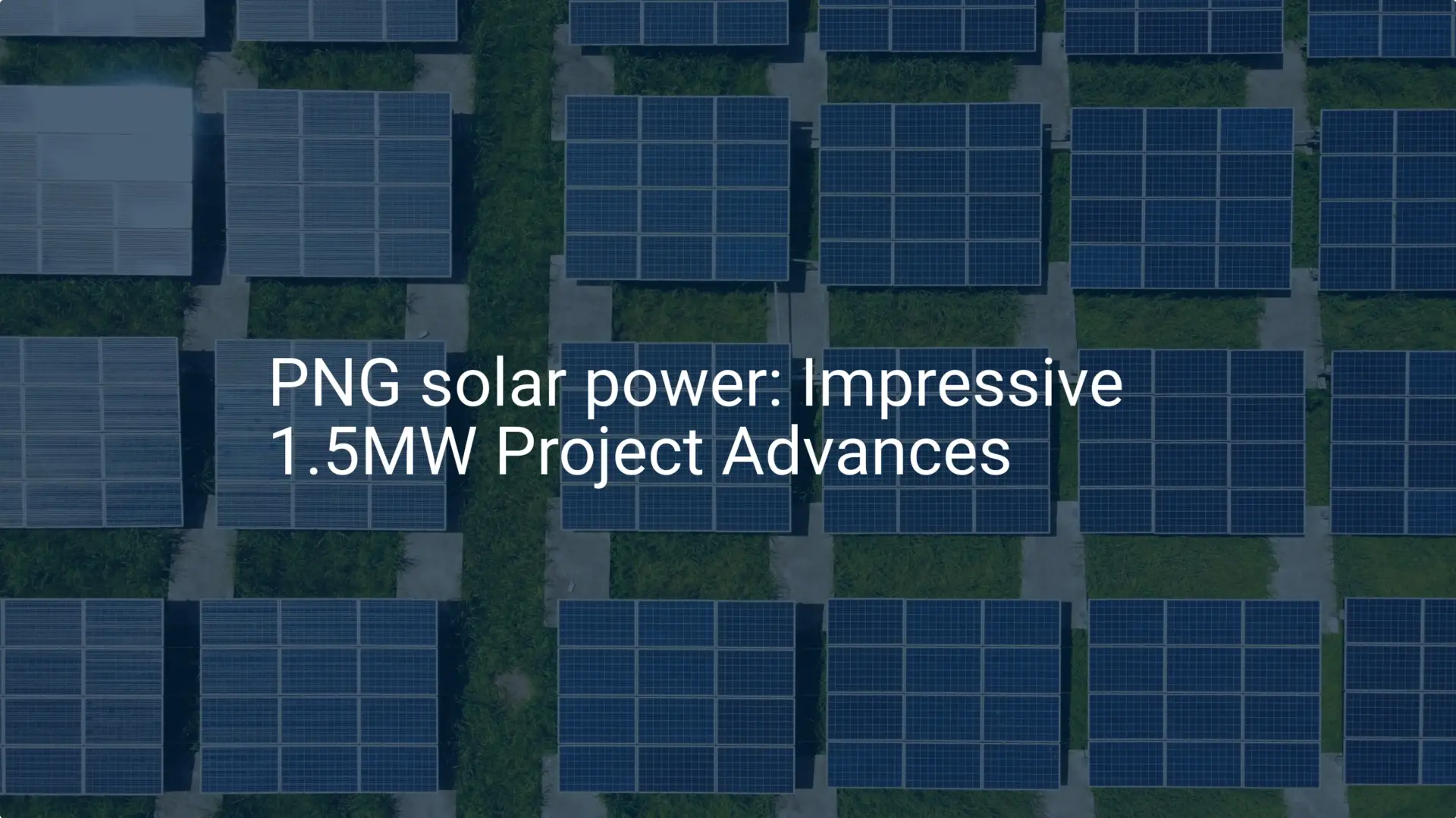Gain comprehensive insights into the statistics and metrics surrounding the solar production industry in Guinea
- Climates to travel (n.d.). Climate in Guinea. Retrieved December 9, 2024, from https://www.climatestotravel.com/climate/guinea
- International Renewable Energy Agency (2024, July 31). Energy profile Guinea. Retrieved December 9, 2024, from https://www.irena.org/-/media/Files/IRENA/Agency/Statistics/Statistical_Profiles/Africa/Guinea_Africa_RE_SP.pdf
- World Bank Document (2018, February). International development association project paper on a proposed additional credit in the amount of sdr 17.6 million (US $25 million equivalent) to the Republic of Guinea for the power sector recovery project. Retrieved December 9, 2024, from https://documents1.worldbank.org/curated/en/172941521424821535/pdf/GUINEA-POWER-SECTOR1-PAD-02272018.pdf
- IFC Advisory Services in Public-Private Partnerships (2016, March). Guinea: Electricité de Guinée. Retrieved December 9, 2024, from https://www.ppiaf.org/sites/default/files/documents/2016-01/PPPStories_Guinea_Electricity.pdf
- Veolia Africa (n.d.). Modernizing Guinea Conakry’s electricity sector. Retrieved December 9, 2024, from https://www.africa.veolia.com/en/our-clients/modernizing-guinea-conakrys-electricity-sector
- World Bank (2016, March 3). 2014-2015 West Africa Ebola Crisis: Impact Update. Retrieved December 9, 2024, from https://www.worldbank.org/en/topic/macroeconomics/publication/2014-2015-west-africa-ebola-crisis-impact-update
- International Renewable Energy Agency (2024). Renewable energy statistics 2024. Retrieved November 24, 2024, from https://www.irena.org/-/media/Files/IRENA/Agency/Publication/2024/Jul/IRENA_Renewable_Energy_Statistics_2024.pdf
- Energy Connects (2024, August 30). Guinea turns to solar to cut energy reliance on neighbors. Retrieved December 9, 2024, from https://www.energyconnects.com/news/renewables/2024/august/guinea-turns-to-solar-to-cut-energy-reliance-on-neighbors/
- World Bank (2020, October 23). Guinea Bissau: Power Sector Policy Note. Retrieved December 9, 2024, from documents1.worldbank.org/curated/en/603551614958568883/text/Guinea-Bissau-Power-Sector-Policy-Note.txt
- Tony Blair Institute (2019, May 13). Guinea’s solar promise. Retrieved December 9, 2024, from https://institute.global/insights/climate-and-energy/guineas-solar-promise
- Worldometer (2016). Guinea electricity. Retrieved December 9, 2024, from https://www.worldometers.info/electricity/guinea-electricity/
- Statista (2022, April). Share of individuals with a reliable supply of electricity in Guinea in 2019. Retrieved December 9, 2024, from https://www.statista.com/statistics/1316156/share-of-individuals-with-a-reliable-supply-of-electricity-in-guinea/
- SEforALL Africa (n.d.). Country data – Guinea. Retrieved December 9, 2024, from https://www.se4all-africa.org/seforall-in-africa/country-data/guinea/
- Solar quarter (2024, April 17). Aptech Africa empowers Guinea with solar mini-grid installations. Retrieved December 9, 2024, from https://solarquarter.com/2024/04/17/aptech-africa-empowers-guinea-with-solar-minigrid-installations/
- Get Invest (n.d.). 82 MW solar project for Guinea clean power generation. Retrieved December 9, 2024, from https://www.get-invest.eu/story/82-mw-solar-project-for-guinea/
- Power Technology (2024, October 21). Power plant profile: Khoumagueli Solar PV Park, Guinea. Retrieved December 9, 2024, from https://www.power-technology.com/data-insights/power-plant-profile-khoumagueli-solar-pv-park-guinea/
- Green mini- grid (2020, June). Mini-grid market opportunity assessment: Guinea Conakry. Retrieved December 9, 2024, from https://greenminigrid.afdb.org/sites/default/files/guinea-english-3.pdf
- PV know how (2024, April 18). Aptech Installs 124kWp Mini-Grids in Guinea. Retrieved December 9, 2024, from https://www.pvknowhow.com/aptech-installs-124kwp-mini-grids-in-guinea/
- EnGreen (n.d.). Advancing sustainable energy solutions in Guinea. Retrieved December 9, 2024, from https://www.engreen.world/feasibility-study-solar-mini-grids-guinea/
- Energy Capital Power (2021, August 6). Harnessing the potential of Guinea Conakry’s renewable energy sector. Retrieved December 9, 2024, from https://energycapitalpower.com/harnessing-the-potential-of-guinea-conakrys-renewable-energy-sector/
- World salaries (n.d.). Average Salary in Guinea for 2024. Retrieved December 9, 2024, from https://worldsalaries.com/average-salary-in-guinea/
- World salaries (n.d.). Average Solar Energy Systems Engineer Salary in Guinea for 2024. Retrieved December 9, 2024, from https://worldsalaries.com/average-solar-energy-systems-engineer-salary-in-guinea/
- World salaries (n.d.). Average Solar Engineer Salary in Guinea for 2024. Retrieved December 9, 2024, from https://worldsalaries.com/average-solar-engineer-salary-in-guinea/
- World salaries (n.d.). Average Solar Thermal Technician Salary in Guinea for 2024. Retrieved December 9, 2024, from https://worldsalaries.com/average-solar-thermal-technician-salary-in-guinea/
- Worldometer (n.d.). Guinea population. Retrieved December 9, 2024, from https://www.worldometers.info/world-population/guinea-population/
- Mediasova (n.d.). Real Estate Conakry. Retrieved December 9, 2024, from https://dom.mediasova.com/en/guinea/2
- International Development Association (2017, June 8). Guinea – Urban Water Project. Retrieved December 9, 2024, from https://www.gtai.de/resource/blob/28380/b62f77a5c017e8b2698e9efbbba3f32a/pro201707035012-data.pdf
- Regus (n.d.). Office Space in Guinea. Retrieved December 9, 2024, from https://www.regus.com/en-gb/guinea
- Statista (2024, September). Non-life insurances – Guinea. Retrieved December 9, 2024, from https://www.statista.com/outlook/fmo/insurances/non-life-insurances/guinea
- International Trade Administration (2024, April 24). Guinea – Country Commercial Guide. Retrieved December 9, 2024, from https://www.trade.gov/country-commercial-guides/guinea-renewable-resources
- African Energy Week (2024, July 22). Guinea-Conakry’s energy minister joins AEW 2024, promoting investment opportunities in oil, gas and regional power. Retrieved December 9, 2024, from https://aecweek.com/guinea-conakrys-energy-minister-joins-aew-2024-promoting-investment-opportunities-in-oil-gas-and-regional-power-2/
- International Electrotechnical Commission (n.d.). Guinea – IEC Affiliate country. Retrieved December 9, 2024, from https://www.iec.ch/dyn/www/f?p=103:36:::::FSP_ORG_ID:1143
- African Development Bank (2021, November 22). Country priority plan and diagnostic of the electricity sector Guinea. Retrieved December 9, 2024, from https://www.afdb.org/sites/default/files/2021/11/22/guinea.pdf
- Lighting global (2018, January). Guinea. Retrieved December 9, 2024, from https://www.lightingglobal.org/country/guinea/
- Africa Energy Portal (2020, April 10). Guinea: Solar off-grid projects receive close to €762,000 from AfDB. Retrieved December 9, 2024, from https://africa-energy-portal.org/news/guinea-solar-grid-projects-receive-close-eu762000-afdb
- Green Climate Club (n.d.). Republic of Guinea. Retrieved December 9, 2024, from https://www.greenclimate.fund/countries/guinea
- Energy Capital Power (2023, May 8). Top 10 solar projects in the MSGBC region by capacity. Retrieved December 9, 2024, from https://energycapitalpower.com/top-10-solar-project-in-the-msgbc-region-by-capacity/











